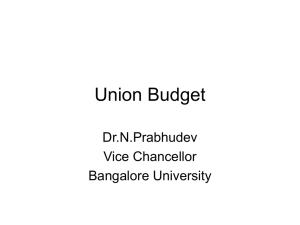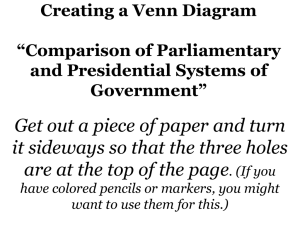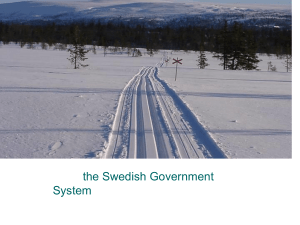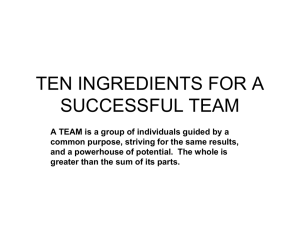exponentially departments
advertisement
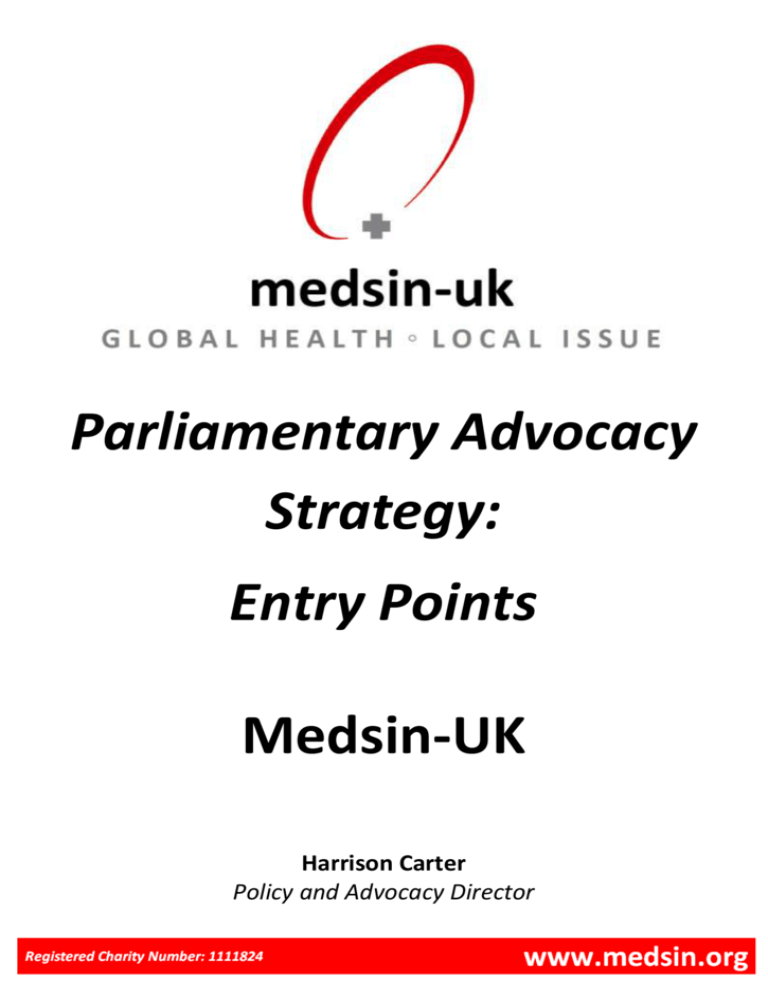
Parliamentary Advocacy Strategy: Entry Points Medsin-UK Harrison Carter Policy and Advocacy Director It is undoubtedly true that a campaign’s support base and effectiveness can increase exponentially when you have people in power talking about the work that you’re doing. Particularly, if they support the cause. There are many opportunities for Parliament and Whitehall to become involved in the work that you’re undertaking across the Medsin-UK network. By forging mutually beneficial working relationships, Medsin has the potential to become the “go to” organisation on issues of global health. This is within our reach. The issue many face, when trying to get those in power to listen to what they have to say is right at the beginning. Who do I contact? How do I contact? What does everything mean? How does one bit of Parliament fit in with the other and where would my request get answered properly? I’ve put together this document to outline everything from contacting a Member of Parliament, to getting in touch with a Minister. I speak about how you can steward relationships with Special Advisors and Aides. I’ve explored beyond Parliament and look at Whitehall, the Open Policy Network and other avenues of advocacy that could be useful and might be of interest. Everything is completely broken down into bite-size segments and explained thoroughly. For example, I tell you how to construct an email to an MP’s office, sentence by sentence. It outlines very specific things that an MP or Minister could do you for you. It also gives some pretty frank truths from my own experience in this area. In the hope that they help you navigate the system. Best, Harrison Carter Policy and Advocacy Director | Medsin-UK policies@medsin.org Contents 1. Why is this important? 2. Contacting an MP 3. Touching base – the first encounter 4. Differences when contacting a Minister 5. Modalities of Advocacy – What can an MP do for you? 6. Modalities of Advocacy – What can a Minister do for you? 7. Steward relationships 8. Other avenues - Whitehall 9. Other avenues – Open Policy Network 10. Useful contacts. Parliamentary Contact – Strategy In order to raise awareness and support for the campaigns that we undertake in Medsin, it’s important to attain parliamentary stakeholder involvement. Parliamentarians act to give the campaigns that we co-ordinate a greater appeal to others. This form of high level advocacy can act to raise the profile of the issues that we’re engaged with. In turn, it allows more people to see what we’re doing and widens the exposure of our work. Individuals Members of Parliament - Contact made through their Private Office in Westminster, unless on a constituency level. This would be for matter’s relating to local events co-ordinated locally by branches or affiliated activities. The most efficient way of getting involved with elected representatives is to go through the people that ‘look after’ them. Those who manage their diary, co-ordinate proceedings in their constituency or private office and liaise and work with the press pool and others. For some modernising members and for most ministers in a UK Government Department, this could be through a person who focuses on the member’s/ minister’s social and digital technology strategy, related to social media output. It may seem, at the outset that contact with someone in a supporting role to the member can have less of an impact, than contact with the member themselves. However, if anything, it acts to strengthen the impact you have. You’re talking with someone who is arguably the most influential person on the team. They have the ability to guide what affairs the MP they work for undertakes. They are the logistical managers and will no doubt be more highly organised and efficient. First contact with an MP can be made through this format: Joe Bloggs MP jbloggs@parliament.uk After this, you should aim to contact the person who has replied to you from the team. Their email address follows the same format. So, you can begin to reply to their more personal work email. As I said, this will give you a greater chance of more regular discussion. And allow you to build a professional relationship with a particular person in the office. First contact should be meaningful. Consisting of: 1 2 3 4 Your name and the organisation you represent Your reason for contact a If an event : date, time, place, target audience and expected attendance b If for campaign support : Campaign name and small blurb c If for request r.e Question that the MP could ask on behalf of you to a minister, select committee enquiry to a committee they are a part of, or at PMQs/ Questions on the floor of the house to a minister (All explained in the Parliamentary procedure document): The nature of the request, its importance and why they’re placed to ask for it on your behalf. Paragraph of information about the cause. a See this from the perspective of the person considering your correspondence. Their default response is ‘NO!!’ You have to prove yourself from the outset. Why is what you’re doing more important than the 10 other requests the caseworker just received before opening yours? b They’re tired and stressed and their MP is being rather despondent and difficult. All they want is an easily understood, concise and to the point document from which they can form a brief. If anything, they don’t want to be doing the extra leg work to form a brief themselves. It should be done for them, by you! This is of greater importance when contacting ministers and officials in Whitehall. Other stakeholder support: Questions to consider and answer – i Who else of importance has supported your initiative? ii Have you met with other MPs or local Cllrs about this issue iii Well known experts in their field of study iv Someone with an inspirational story Reciprocity of your request a Refer to their parliamentary work and the campaigns they’ve supported in the past b Remember this is you forming a briefing document to the MPs staff. This is something that they’d want to know before considering a request. Certainly before pitching it to those they work for. Again, even more important for high level communication. c http://www.theyworkforyou.com/ - MPs voting records, speeches and the rest of it recorded since their election Contact number a Vital that you leave a contact number or email that you respond from or check most days a 5 6 N.B Additions to this when contacting a Minister’s Officer – via the generic email found on the Department’s Website (usually in ‘About’ or ‘Home’ then ‘Contact’), or by referring to the Government Communication Department White Book B (At the bottom of this information sheet) would be: 1 2 3 4 Think of the Minister’s Responsibilities – Found by simply searching the web for the relevant government department site and locating the minister on there. Think about the Department’s current agenda – What they’re trying to concentrate on and therefore what they may like input in relation to. Can your pro-active advocacy plans fit in with the departments plan r.e Going Forward? Any consultation – Green Papers, Or Bills to be considered by parliament White Papers that could be contributed to. (Check out ‘upcoming’ on the ‘they work for you website’ above. Has the schedule for parliamentary days) Each department consists of a number of policy teams that can be fed into directly and they also consider campaign responses from a number of organisations. This can be done through searching the departmental sites. Submitting online forms and the like. Once this first contact is made, try and follow up with the person who replies. 5 To contact, there are many generic emails. Another way would be to contact the Minister via their constituency office website (not supposed to) and it should get forwarded quicker to the communication people at their department in government. 6 Modalities of Advocacy What can a Member of Parliament do for you? 1 2 3 4 5 6 7 8 Meet relevant people – Primarily they can make speedy representations to government departments and relevant parliamentary interest groups Set up and sign an Early Day Motion (EMD) - A useful campaigning tool, but won’t form law. Just informs. Put their name in the ballot for an Adjournment Debate -These take place at the end of the parliamentary day. Generally, they relate to a constituency issue. But MPs can draw an international perspective, in relation to constituency activities, if that’s feasible. They will get a response from a government minister from the relevant department. http://www.parliament.uk/about/how/business/adjournment/ Take part in a Westminster Hall Debate – Different sort of peripheral discussion about a particular issue that takes place in the debating rooms in Westminster Hall. http://www.parliament.uk/visiting/visiting-and-tours/ukvisitors/westminster-halldebates/ Submit written questions to Ministers Ask questions to a relevant Minister on the floor of the house Ask questions to the Prime Minister on the floor of the house Mention our work in a debate in the House of Commons For the relative pros and cons of each modality, see the Parliamentary Procedure Document What can a Minister do for you? 1 2 White Paper Case Study – Feature your work in the case studies that provide reasons for change in their white paper documents. We can be successful in doing this by having a pro-active media and press relations policy. Getting local and national journalists interested in our work Floor of the House – Can discuss our work in response to members written questions. 3 4 5 UK Parliamentary Event attendance –Attend events we can consider organising in parliament Reference in Departmental events – Mention what we do to others who do something similar. Recognise us as stakeholder that is worth contacting. Form part of UK Government Strategy – Not part of law, but guidelines departments recommend people to adhere to. It’s important to maintain stewardship over any contact formed with Ministers and MPs by 1 2 3 Forging a professional working relationship with their Parliamentary Aides and/or Special Advisors (SpAds). Not very easy, but very worthwhile. Set a follow up, having convinced them that one is important – what you’ll have done by when. Why you should meet again following this. Seek to work with the Civil Servants and other officials that crowd themselves around a Minister, not just political appointees. Civil Servants can be more open about the potential for ideas and campaigns. SpAds – who are politically appointed centrally, by the party that the minister is in, tend to seek what is politically expedient at the time. Beyond Parliament Whitehall 1 Prime Minister’s Policy Unit and Cabinet Office a Internet presence – Important to have a presence on the internet in relation to the campaigns you’re running, the priority advocacy work you’re undertaking. These people will want to do their research on us and our organisation. An impressive set of pages on a website will persuade them to talk to us. b Our job is to advice, not to make aware. They rarely allow access to people that want to make them aware. Sell yourself as a guide to current thinking. Based on work that you’ve done. Focus groups and research that you’ve carried out. These departments and units are comprised of academics (to some degree). They’ll be more responsive if you offer them an evidence base. And suggestions for change or development of policy. c They’ll almost certainly say yes if you offer a ‘unique selling point’. What is it about Medsin that means that what we say comes from a different perspective/ angle? Is it a message they’re likely to have heard previously? d e-petitions ie. If you get more than 100 000 signatures then the government have to discuss the issue. Subject, in most cases, to the backbench business committee setting time aside for the debate. http://epetitions.direct.gov.uk/ Other Avenues 1 Open Policy Network – Check out @OpenpolicyUK a A more transparent way of forming government policy. How might we be able to contribute to this. The most open and genuinely consultative mechanism of engagement that the government are offering, to date. Worth taking a look at and considering input here on any issue they’re working on. Generic Contacts http://www.brettonwoodsproject.org/art-537382 - Take a look at the key contacts at the bottom. Lots of interesting people on this https://gcn.civilservice.gov.uk/wpcontent/uploads/2012/03/406683_WhiteBook_Mar2012_acc.pdf -In terms of Whitehall and Media, one of the best contact books available. If you know others working in and around government departments, these also give you the general template for contact. Where to put the first and second name for them depending on where they work in government.
